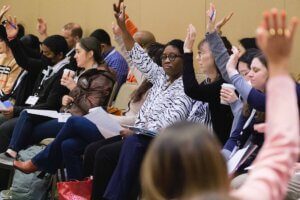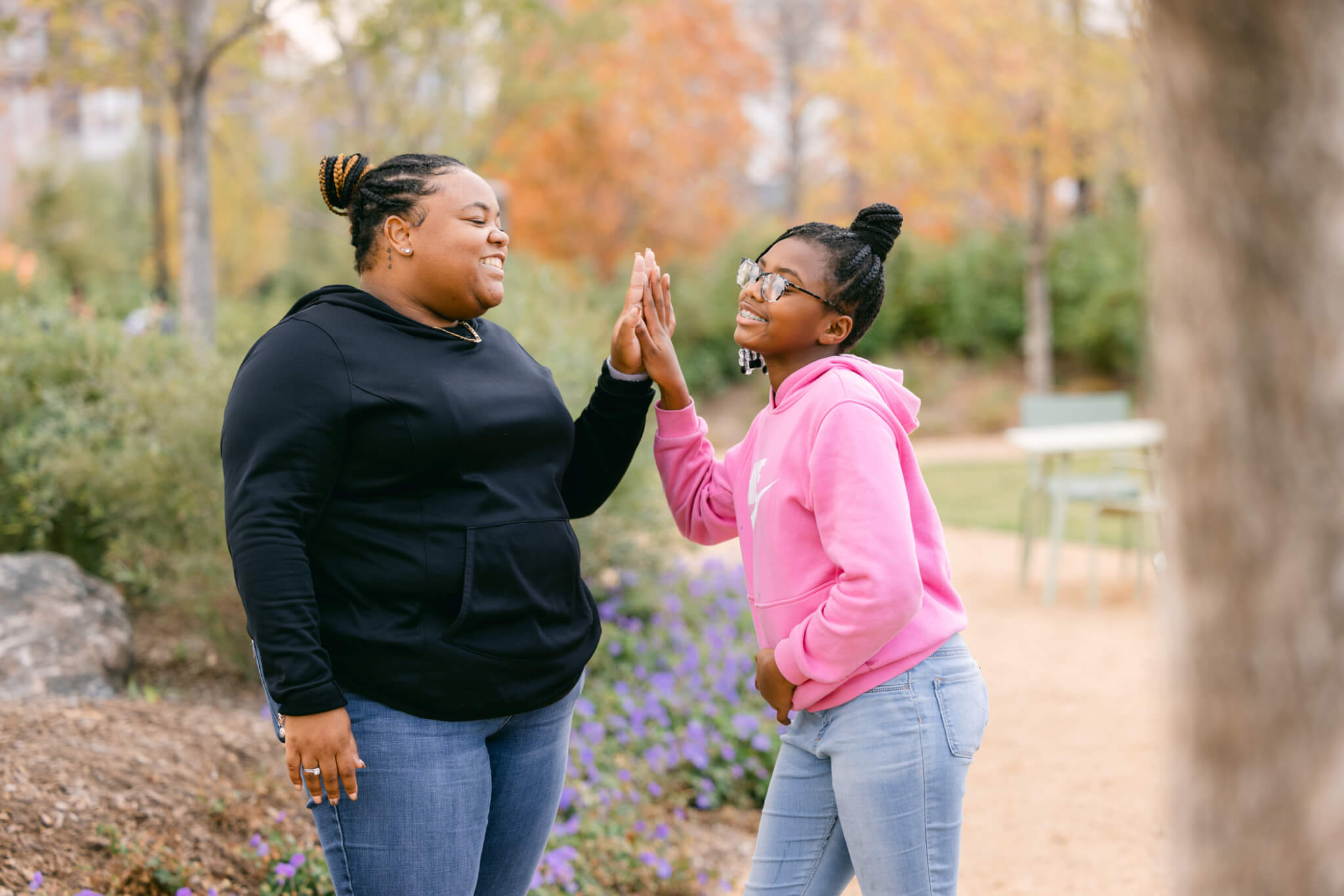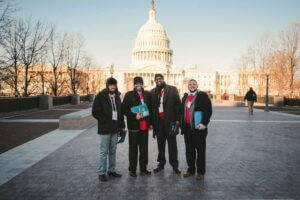On the Road to a Relationship-Centered School: A Rhode Island Case Study
Determining the Destination
For Woonsocket Public Schools, the realization that it was time to start a journey toward relationship-centered schools came in 2021. The local results of Surveyworks, the Rhode Island Department of Education’s wide-ranging annual survey of students’ thoughts and experiences in school, left little doubt. Woonsocket students were not feeling strong connections to teachers and staff. 46% of students in grades 3-5 and 81% of students in grades 6-12 felt “somewhat,” “slightly,” or “not at all connected” to the adults at their school.
The school district formed an SEL (social-emotional learning) working group and signed on to be one of the first districts to take part in MENTOR’s Relationship-Centered Schools initiative. Over much of the next year, the group, which included staff from the school district, MENTOR Rhode Island, and New England Basecamp, as well as members of the community, worked to create a district-wide action plan for SEL. The team collected and analyzed data from many sources and identified two areas for district-wide improvement: Relationships and Social-Emotional Learning Skills. The larger working group split into sub-groups to tackle each goal, with the experts in mentoring naturally joining the relationships sub-group. That group was able to develop a road map to creating a relationship-centered school.
Now it was time to test the road map to see if it led the district where it wanted to go. Cathy Carvalho, Principal at Pothier-Citizens Elementary School and a member of the relationships sub-group, offered her school as the test case. The first step was the development and implementation of a Connections Survey at the school. The target was to conduct the survey by the close of the 2022-2023 school year.
After lots of hard work, an online survey was created and opened up to all adults working at Pothier-Citizens at the end of March 2023. The survey listed all of the more than 800 students in the school and allowed the adults to place a checkmark next to all those they knew by name and an additional checkmark for those whose interests they were aware of.
A Real Eye-Opener
Once the data was analyzed, the results were a real eye-opener for the school. “When you’re trying to change minds, data is the best tool,” says Cathy. The data in this case was clear. On the Pothier side of the school campus (grades PreK-2), staff members reported knowing, on average, the names of 113 students, and knowing the interests of 37 students. This means the average staff member knows the name of 34% of students and knows about the interests of 11% of students. On the Citizens side (grades 3-5), on average, staff members reported knowing the names of 94 students, and knowing the interests of 33 students. This means the average staff member knows the name of 20% of students and knows about the interests of 7% of students. Further, the survey found that the number of students known by name increased as they moved up through the grade levels but the knowledge of student interests remained mostly stagnant. Students with IEPs, and boys were more widely known on average and multi-language learners and girls were less widely known, but again, knowledge of student interests stayed mostly level among those different sub-groups. The data also showed the averages from the perspective of how many different adults knew each student by name and by interests. At Pothier, each student was known by an average of 16 adults with an average of 5 knowing some of their interests, and at Citizens each student was known by an average of 13 adults with an average of 4 adults knowing some of their interests. There were even a few students whom no adult reported knowing well.
A Mind-Shift and a Gearshift
If you’ve ever met Cathy or her team, you wouldn’t be surprised to learn that the results had an almost immediate impact on the hearts and minds of the school staff when it comes to the importance of relationships in the school and the kids feeling known and connected. On the school’s end-of-year staff survey nearly 50% identified the Connection Survey as the single most important thing they did during the school’s Alternative Learning Time (ALT) for the entire year, and 60% said that ALT for the new school year should focus on SEL, brain breaks, celebrating the positive, teamwork, climate/culture, and building connections.
Here are some of the thoughts staff have had on the topic of relationships:
- “More celebrations for good behavior!”
- “Can we work together so we get to know more of our students?”
- “Let’s do more with getting together across grade levels”
- “We need to do better getting to know our students, celebrating the positive and working as a community with like expectations.”
- “Talk less at our student and listen more.”
- “We need to do more to include all students, look at the subgroup survey data…we can do better!”
- “We do more, students’ behavior improves…it’s not that hard to build relationships if it’s our focus, so let’s make it our focus!”
Cathy says the mind-shift on the importance of connections within the school was quick and has been amazing, “Even during the summer I’ve had staff members dropping in to see me or reaching out to me with ideas on how we can make more of our students feel known, connected, and supported.”
With the mind-shift in place, it’s now time to shift into high gear and begin to implement the strategies the school has started to identify to improve the breadth and depth of the relationships at the school. This school year, all students will have a lanyard with their name on it and the opportunity to place stickers on the lanyard that represent some of their interests. It will be a quick reference for the adults in the school to learn more about the students and strike up a conversation about their interests.
Pothier-Citizens Elementary school is now cruising down the road toward being a relationship-centered school and their process, findings, and ultimate success are creating the map for the rest of Woonsocket Public Schools to follow. MENTOR Rhode Island, MENTOR National, New England Basecamp, and all our partners in the work, stand ready to help guide the school and the district to their destination of being relationship-centered.


